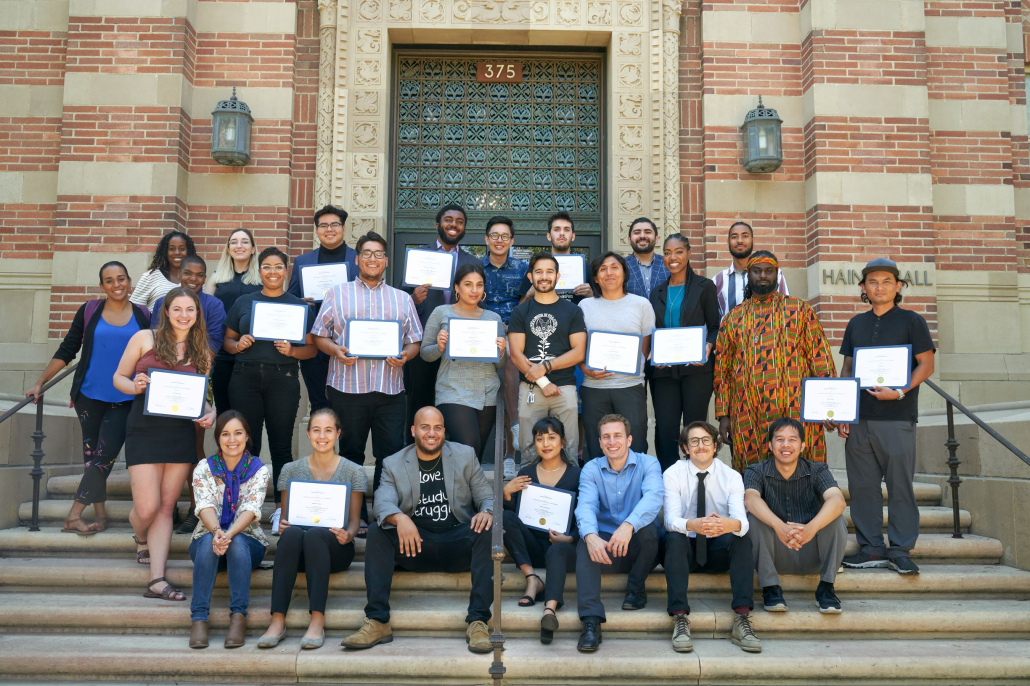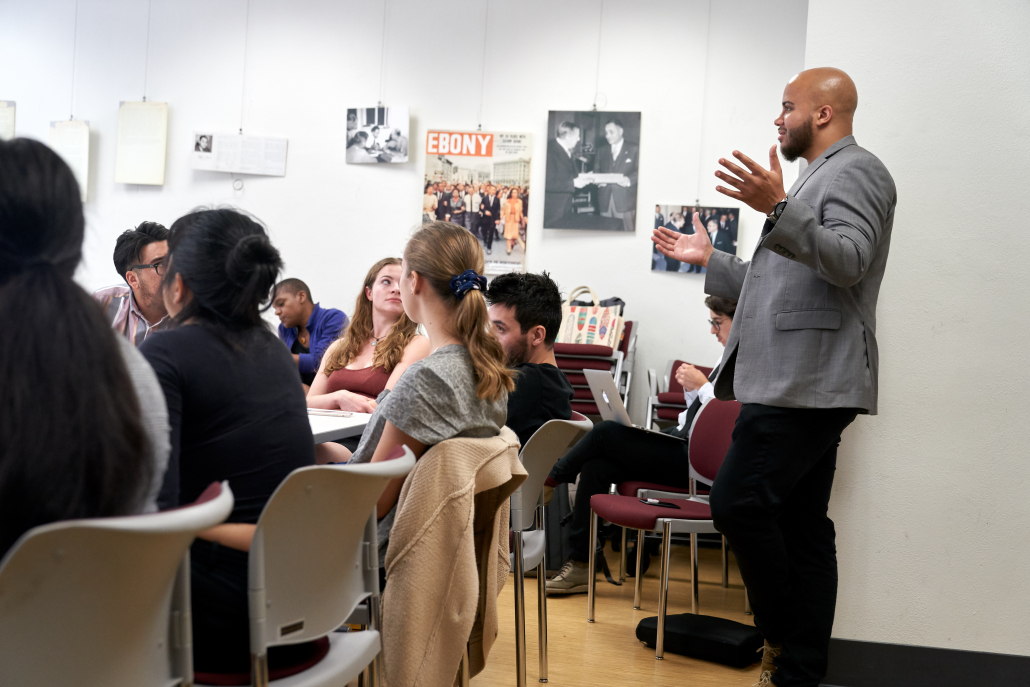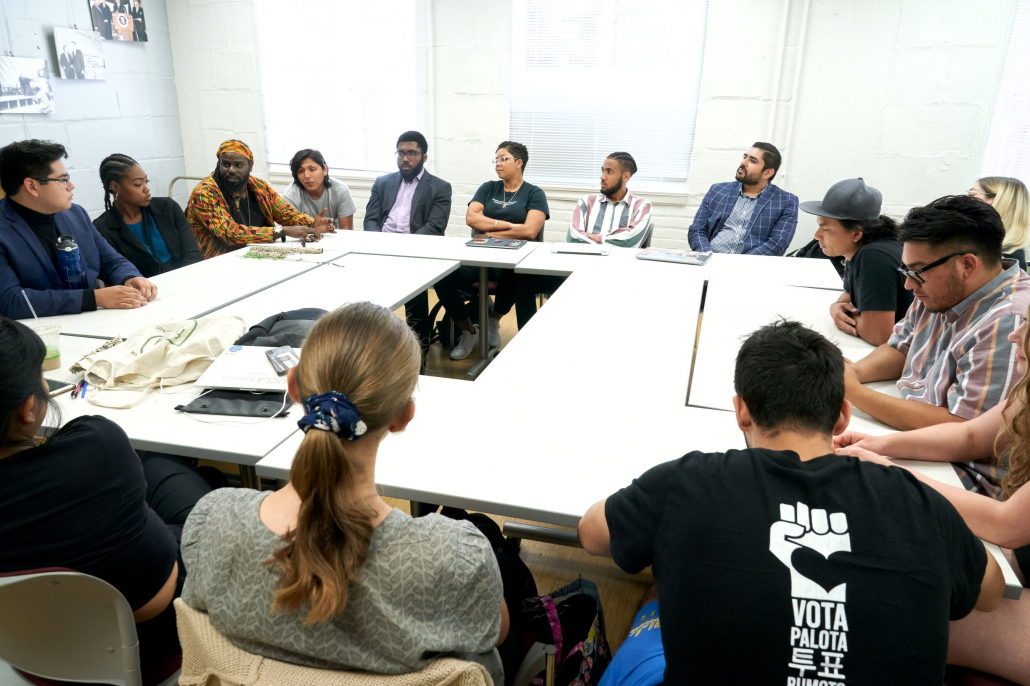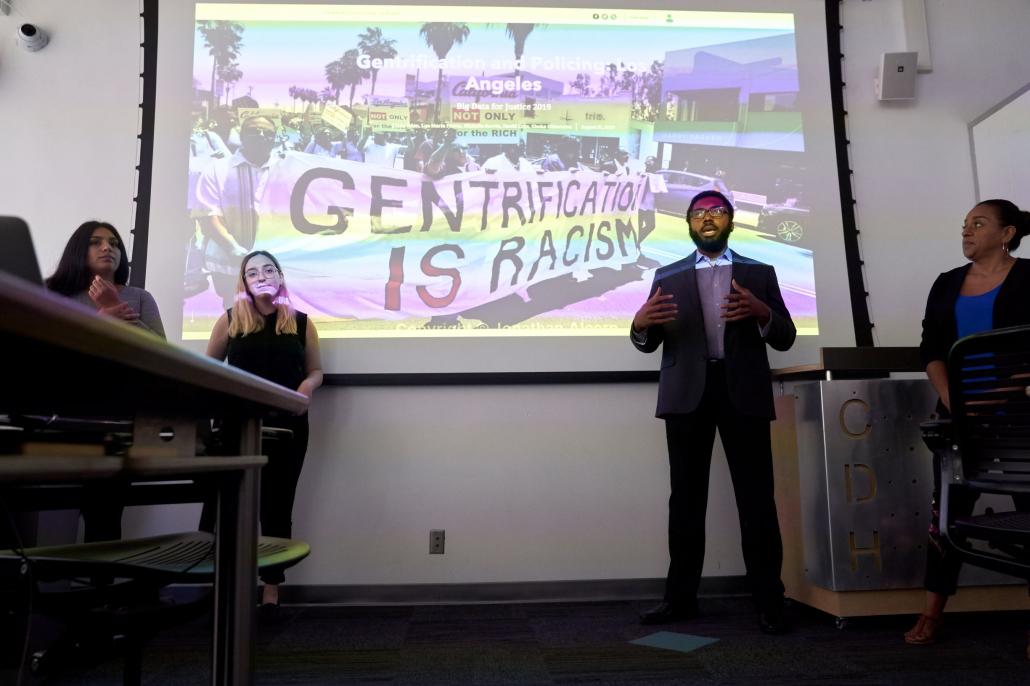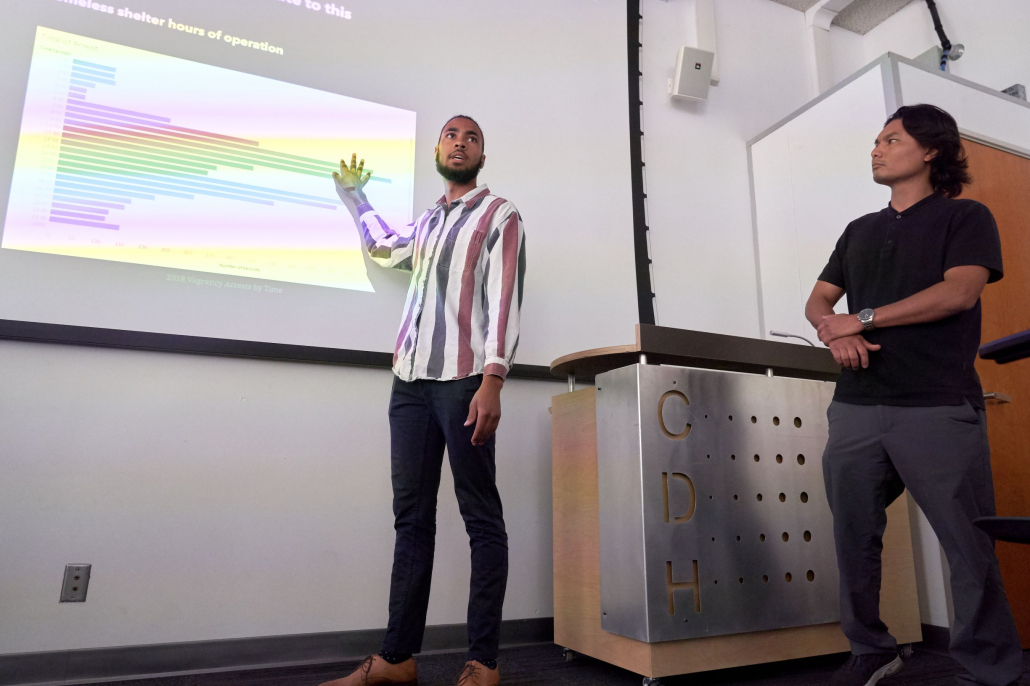The Big Data for Justice Summer Institute is an innovative four-week program designed to develop student’s abilities to critique, analyze, visualize and map big data using Tableau, GIS methods, and other digital technologies. The course emphasizes project-based learning and consists of a series of skill-building workshops and educational seminars as well as fieldwork and lab/studio time focused on issues around criminal justice in Los Angeles. Students will collaborate with community partners to conduct analyses consistent with current on-the-ground advocacy work using data on arrests and bookings by the Los Angeles Police Department and Los Angeles Sheriff’s Department. In order to illustrate and document their work, students will develop an online digital portfolio. Students teams will generate final reports to community partners that visualize data in the form of graphs, charts, maps, and other types of figures as well as a robust write-up explaining the results of the analyses.
The goal of the Institute is for students to complete the four-week program with the following newly acquired knowledge and skills:
-Learn to use and critically assess a suite of digital tools, spatial and quantitative datasets, and mapping/visualization/data analysis software technologies for studying criminal justice in Los Angeles.
-Combine urban, social, computational, statistical and humanist perspectives to investigate data related to criminal justice.
-Understand how the history of Los Angeles is intimately and unevenly linked with race, policing, and power; learn how this is manifest in built spaces, urban infrastructures, and communities.
-Learn transferable technology skills through collaborative, project-based research, while engaging in multidisciplinary inquiry.
-Learn to work in research teams in order to conceptualize, design, carry out, and deliver persuasive arguments through writing, data analysis, mapping, and data visualization.
-Experience engaging community partners and working collaboratively on advocacy-based campaigns using data.


